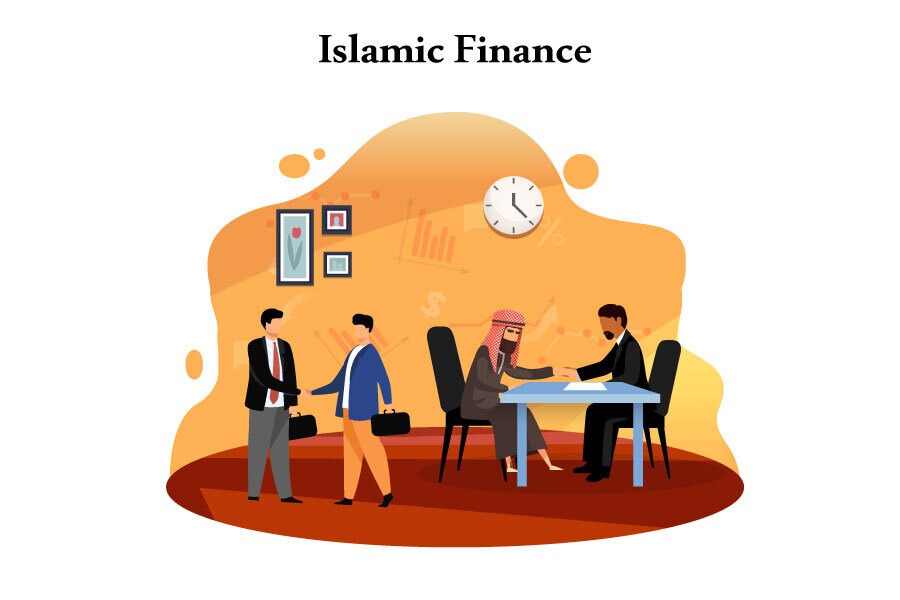What is Islamic Finance?
In a world where money and morals often clash, Islamic finance stands out as a shining star of ethical money management. This financial system follows rules set by Islamic law, known as Shariah, and it brings together financial smarts with a strong moral compass. Let’s dive into what Islamic finance is all about – its main principles, how it works, and its impact on the global money scene.
What are the Principles of Islamic Finance?
- No More Interest (Riba): One of the key rules in Shariah finance is a strict no-no to charging or paying interest, known as Riba. This rule comes from the idea that money shouldn’t be used to make more money on its own. Instead, it should be used for trading and doing business.
- Sharing Risks and Rewards: Islamic finance likes the idea of sharing. In this system, when people work together on a project, they share the good and not-so-good stuff. It’s a bit like teamwork, where everyone gets a piece of the pie – whether it’s a big pie or a small one.
- No More Guessing Games(Gharar):Gharar refers to excessive uncertainty or ambiguity in contracts. In Islamic finance, transactions must be transparent, well-defined, and free from ambiguity to avoid exploitation or unjust enrichment. You won’t find confusing or uncertain deals. Contracts need to be clear and easy to understand. No sneaky business allowed!
- Being Ethical in Investments: With Islamic shariah finance, it’s all about doing the right thing. That means no investing in things like alcohol, gambling, or tobacco – all those things that can harm people and the planet.
- Backing Up Transactions: Islamic finance emphasizes tangible assets and productive activities. Transactions should be backed by real assets to ensure the legitimacy and sustainability of the financial arrangement. In Islamic finance, your money isn’t just floating in the air. It must be tied to something real, like a building or land. It makes sure that everyone’s playing fair and square.Tangibility is a key principle in Islamic finance.
- Sharing the Wealth (Zakat): Have you ever heard of the saying “sharing is caring”? IF takes that as a rule. Wealth redistribution is a pivotal aspect of Islamic finance. Zakat, a mandatory form of charity, along with other forms of voluntary giving, ensures the equitable distribution of wealth. This mechanism aims to uplift the less fortunate and create a more just society.
How Islamic Finance Works?
- Entrepreneurship Mode (Mudarabah): Imagine you’ve got a great idea but need some cash to get started. Islamic finance says, “Sure, let’s team up!” One person brings the money, the other brings the idea and does the work. If things go well, both share the profits. If things don’t work out, the money person takes the hit.
- Partnership Power (Musharakah): This is like a money friendship. Everyone chips in with some money, and everyone gets a share of the good or not-so-good stuff.
- Lease Life (Ijara): It’s like renting but fancier. Someone owns the thing, like a car or a house, and someone else pays to use it. You might even get the chance to buy it later.
- Fair Trading (Murabaha): If you want something but need help to pay it immediately, Islamic finance steps in. You agree to buy it at a slightly higher price, but the extra cash is good use. It’s like paying a little extra rent for something you really want.
- Bonding with Assets (Sukuk): Sukuk, often referred to as Islamic bonds, are financial instruments representing ownership of tangible assets. Instead of traditional bonds, you invest in something real in Islamic finance, like a building. Your earnings come from the rent or profits made by that building.
- Insurance, Islamic Style (Takaful): Takaful is an Islamic form of insurance where participants contribute to a common pool to provide mutual assistance and coverage against specified risks. It embodies the principle of shared responsibility. Think of Takaful as a helping hand insurance. People pool their money together to help others when things go wrong. It’s like friends helping friends.
What Islamic Finance Means for the World?
Islamic finance isn’t just for one part of the world. It’s making its mark globally. Countries like Malaysia, Saudi Arabia, and the UAE, Pakistan are creating special hubs for Islamic finance. Even Islamic Finance in North America is making its place. These hubs help people and businesses find ethical financial solutions that match their beliefs.
Challenges for Islamic Finance:
Despite its growth, like anything, Islamic finance has its challenges. Ensuring everyone agrees on the rules under Shariah scholar’s guidance and finding enough experts who understand Islamic law can be tough. Still, the industry keeps growing and adapting. Islamic fintech (that’s finance and technology mixed) is on the rise, making it easier for people to get the financial services they need.
In a nutshell, Islamic finance is all about doing money the right way – with honesty, fairness, and respect for others. It’s a money system that works with a moral compass, and it’s changing the way we think about finance on a global scale.

















